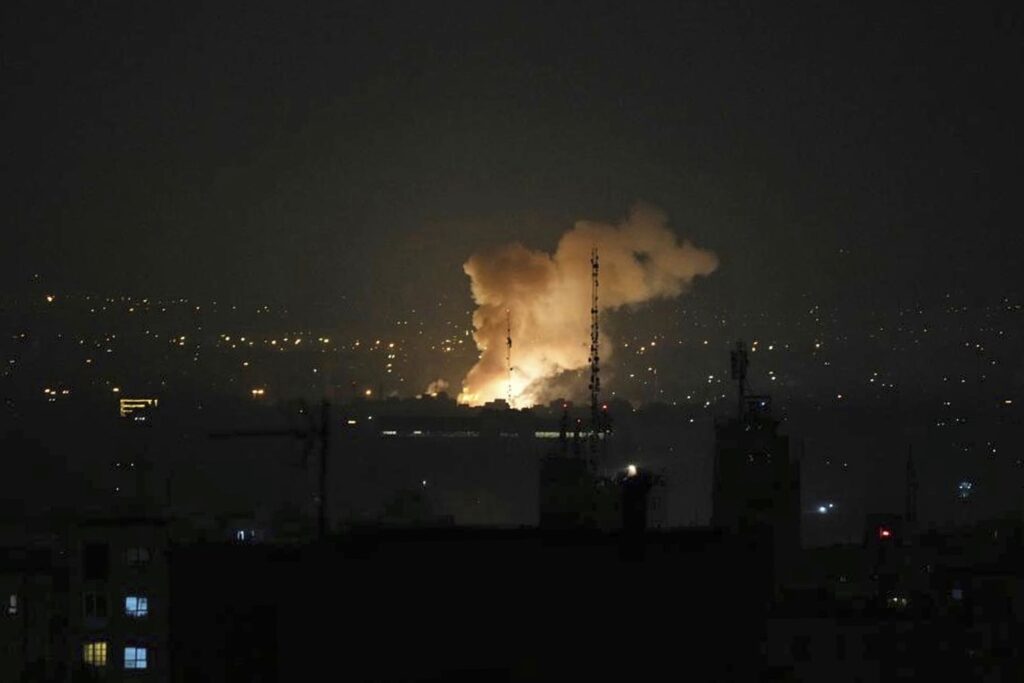Escalation in Iran Conflict Following U.S. Strikes on Nuclear Facilities
The recent U.S. military strikes targeting Iran’s nuclear installations have raised alarm regarding the potential for a broader conflict in the Middle East. Nations across the globe reacted on Sunday, advocating for diplomatic solutions and urging caution. President Trump had previously indicated he would take action within two weeks, but the rapidity of the U.S. involvement—initiated in the early hours of Sunday—has caught many off guard.
President Trump described the operation as a “spectacular military success,” emphasizing the precision with which the attacks were executed on three crucial nuclear facilities: Fordo, Natanz, and Isfahan. The extent of damage from the strikes remains uncertain, and Iran has vowed to retaliate, while Trump warned the Islamic Republic against targeting U.S. interests in the region.
The U.S. decision to align itself with Israel against Iran has spurred debate over whether Iran will respond with capitulation or retaliation. Approximately 40,000 U.S. troops are stationed in the Middle East, many within range of Iranian missiles, although reports suggest that Iranian missile capabilities have been weakened due to ongoing Israeli assaults.
World Reactions to the Strikes
Leaders in various countries have expressed their thoughts on the U.S. strikes:
- Israeli Leadership: Prime Minister Benjamin Netanyahu commended the U.S. action, asserting that strength precedes peace. He urged for continued strength to secure safety in the region. President Isaac Herzog echoed these sentiments, characterizing the strikes as a victory for liberty and responsibility.
- Iran’s Response: Iran’s Foreign Minister Abbas Araghchi labeled the U.S. actions as a serious violation of international law, asserting Iran’s right to defend its sovereignty. Concurrently, the Iranian Revolutionary Guard Corps condemned the strikes, stating that the U.S. had placed itself at the forefront of aggression.
- Global Condemnation: The Kremlin condemned the U.S. actions, describing them as irresponsible and likely to escalate tensions further. U.N. Secretary-General António Guterres voiced his serious concern over the situation, underscoring the urgent need for diplomacy.
- Support From Allies: Groups aligned with Iran such as Hamas and the Houthis condemned the strikes, pledging to join Iran in retaliation against American and Israeli forces.
- Calls for De-escalation: Nations including Saudi Arabia and European leaders have called for restraint and dialogue amid rising tensions, reflecting widespread concerns over the deteriorating regional stability.
Summary of International Responses
| Country | Response |
|---|---|
| United States | Lauded the military action as a success. |
| Iran | Promised retaliation and condemned U.S. violations. |
| Russia | Strongly criticized the strikes, calling for de-escalation. |
| Saudi Arabia | Expressed deep concern and urged restraint. |
| Hamas & Houthis | Condemned the strikes and announced support for Iran. |
The international community remains divided, with some leaders condemning the U.S. actions while others express support. As tensions continue to mount, the potential for an expanded conflict remains a significant concern for global security and stability.


